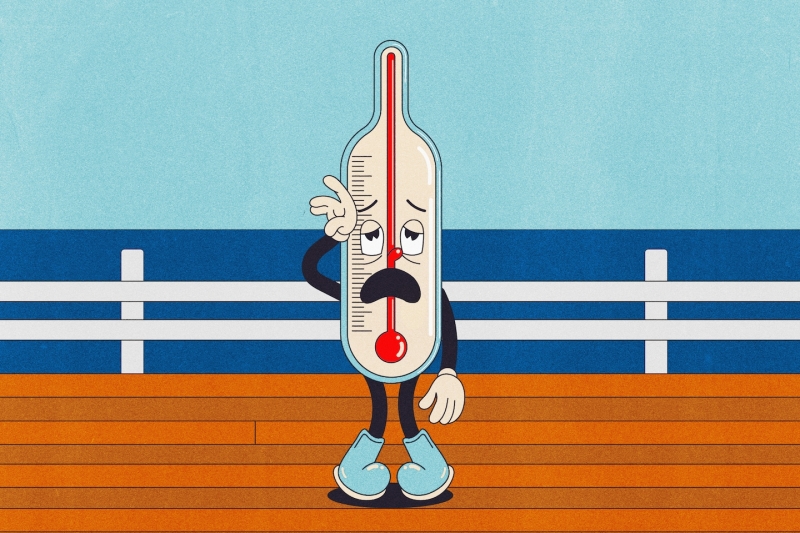What to know about medical facilities, doctors and emergencies on cruise ships
Cruise ships are universes of their own, with restaurants, casinos, waterslides and race tracks. Packing thousands of passengers into confined spaces, sometimes for weeks or even months, can heighten the risk of spreading contagious diseases.
Although most major cruise lines have cleaning standards, catching something on a ship isn’t far-fetched, according to Joe Scott, senior director of fleet medical operations for Carnival Corp. A ship is usually most concerned about the diseases that can spread in these close-contact environments, such as gastroenteritis, influenza and the coronavirus. Norovirus outbreaks have risen as people have returned to cruise ships after a pandemic hiatus; the Centers for Disease Control and Prevention has reported 13 outbreaks on cruise ships this year.
“On cruise ships, probably the biggest thing we worry about is communicable disease,” Scott said. “How do we keep our crew members, our guests and the residents of the countries that we visit, how do we keep them all healthy and safe?”
We asked: Should I cancel a cruise if my ship had norovirus?
Major cruise lines follow health and sanitation standards to keep passengers safe on board, including regular cleaning throughout cabins, restaurants, snack areas, pools and elevators. Ships are also subject to at least two unannounced annual inspections in partnership with the CDC and three or more formal public health reviews, according to the Cruise Lines International Association.
Passengers should prepare for the possibility that they may get sick on their voyage, such as by purchasing travel insurance that covers medical costs, visiting a doctor beforehand to assess medical risks or packing extra medication.
As major cruise lines prepare for peak booking season, here’s what to expect if you find yourself sick on a ship.
More cruise news
Living at sea: Travelers on a 9-month world cruise are going viral on social media. For some travelers, not even nine months was enough time on a ship; they sold cars, moved out of their homes and prepared to set sail for three years. That plan fell apart, but a 3.5-year version is waiting in the wings.
Passengers beware: It’s not all buffets and dance contests. Crime data reported by cruise lines show that the number of sex crimes has increased compared to previous years. And though man-overboard cases are rare, they are usually deadly.
The more you know: If you’re cruise-curious, here are six tips from a newcomer. Remember that in most cases, extra fees and add-ons will increase the seemingly cheap price of a sailing. And if you happen to get sick, know what to expect on board.

